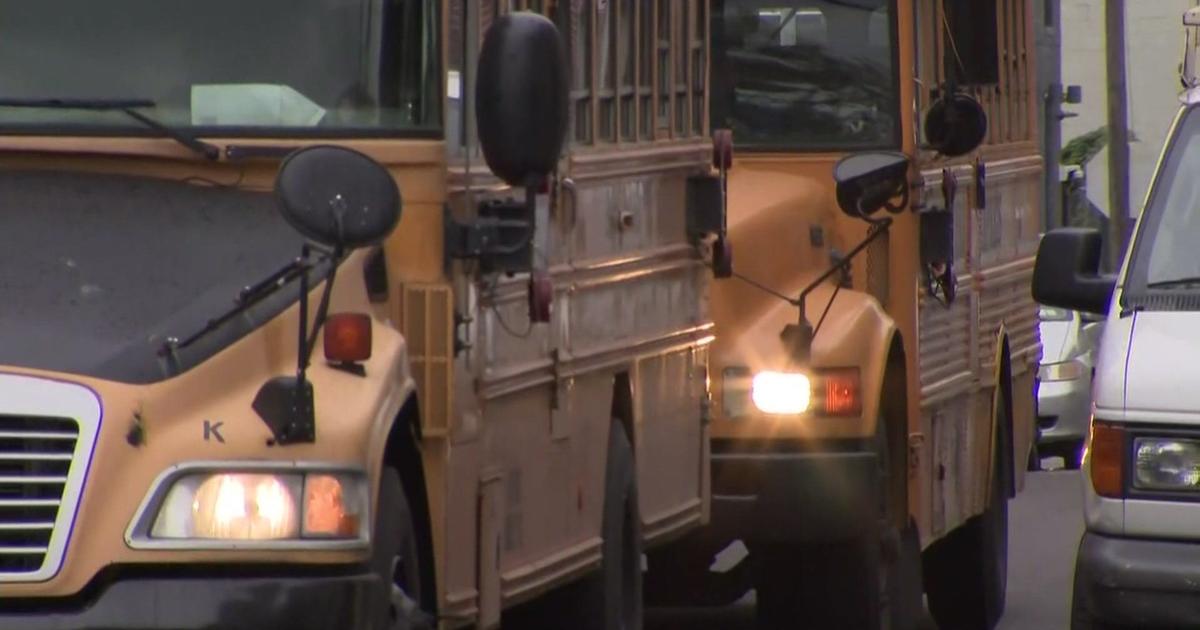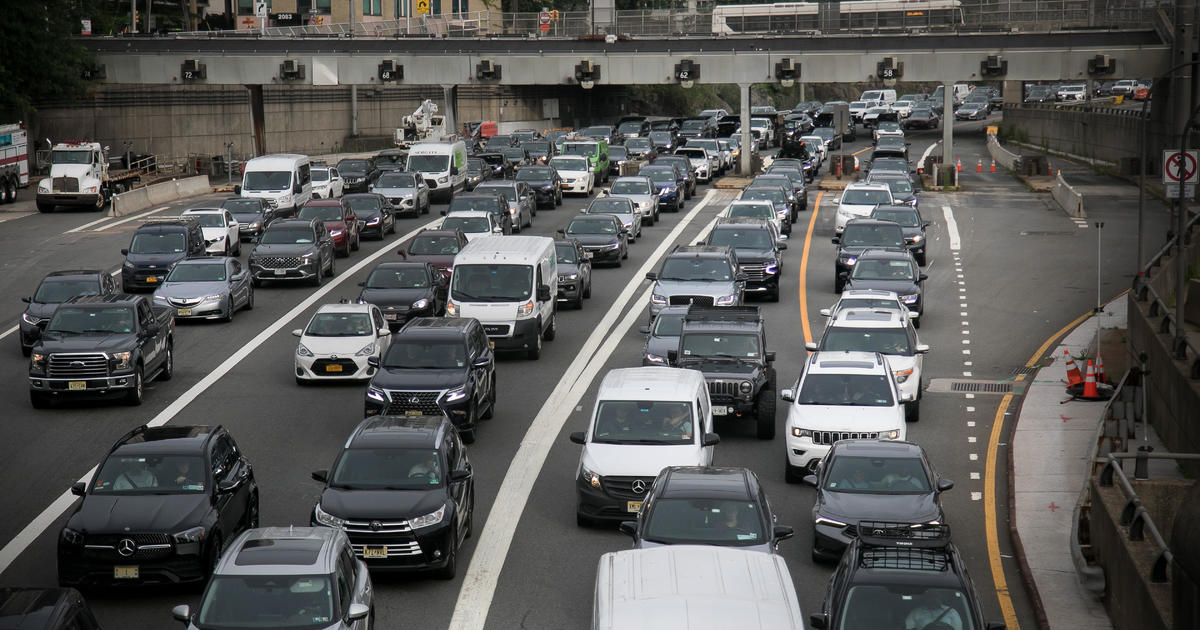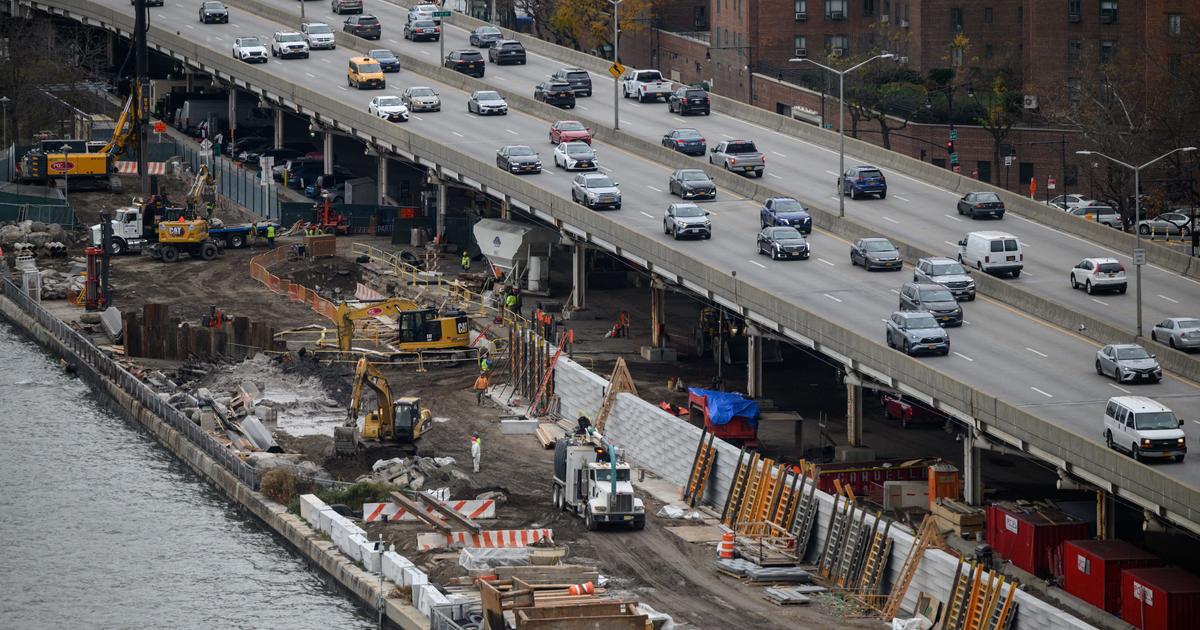High School Students Study 'Cancer Alley' Near Fresh Kills Landfill
NEW YORK (CBSNewYork) - Two high school seniors from Staten Island Technical High School are up for the $75,000 Intel science prize tonight for their research on dangerous air around us.
They are Nicole Simineri, 18, and Patrick Colossi, 18.
WCBS 880's Wayne Cabot asked Simineri what is in the air that worries her.
"Fungal spores," she answered.
Fungal spores come naturally from plants and blow through nature and that's part of life. Why is it bad?
High School Students Study 'Cancer Alley' Near Fresh Kills
"The thing is since Staten Island is notorious for having one of the single largest landfills on the eastern seaboard - the Fresh Kills Landfill - we hypothesize that these dangerous fungi do exist in harmful concentrations on the island," she said.
So, landfills are conducive to growing lots of bad fungi?
"Unfortunately, yes," she said.
So, what does that mean if you live near the former Fresh Kills Landfill?
"If you live in that area and you are immunocompromised, which means that you have a weakened immune system or some sort of prevailing illness - and this could range anywhere from asthma to allergies and all the way up to cancer and chemotherapy - you are susceptible to having complications due to these spores," Colossi said.
So, what is a person to do, stay inside and close the windows?
"We recommend that you put in some sort of air purification system and we also recommend that you keep your medication with you readily available just in case anything were to happen because we can't force anyone to move and leave their homes, but we would like to make people aware of this health risk," he said.
But it really is that bad around the landfill?
"That it is, especially where there's a spot right above it that is termed 'cancer alley' because it has such high mortality rates due to cancer there," he said.
Colossi said he knows people who have been sickened.
"Apparently, 30 percent more people die of heart disease on Staten Island than the rest of the city as a whole and 11 percent more people die of cancer than the rest of the city," he said.
He said anywhere between "some" and "most of it" could be due to the spores.
With Fresh Kills closed, is the danger subsiding?
"Unfortunately, no," said Simineri. "You can still the rot and decaying matter just sitting there, just rotting away, which is perfect for fungal growth, unfortunately."
If this is a public health hazard, which the research suggests, should the city do something? Is there something that can be done?
"One thing that I've noticed was that some other landfills have coverings, although we're not really sure if that would actually make much of an impact," she said. "The one thing that we're looking into are fungicides. So, although there is no way to completely eradicate the fungi from the area, which would also be detrimental to the ecosystem since they are, naturally, a part of it, we would just like to use fungicides to get the population down."
We checked records from the city health department and they confirm "a relatively slight, but statistically significant, elevation of certain cancers on Staten Island compared with the rest of the city."
Colossi added that the field is so unexplored and so little is known about it that the United States actually doesn't have standards for what is a safe amount to inhale and what is not.
"So, ended up having to look at a European model for that and we were able to determine, by those standards, that these were dangerously high amounts," he said.
Why did they suspect Fresh Kills?
"Because it is the perfect source of decaying matter, which these decomposers feed off of," he said. "It's basically a perfect nutrient source."
You May Also Be Interested In These Stories



